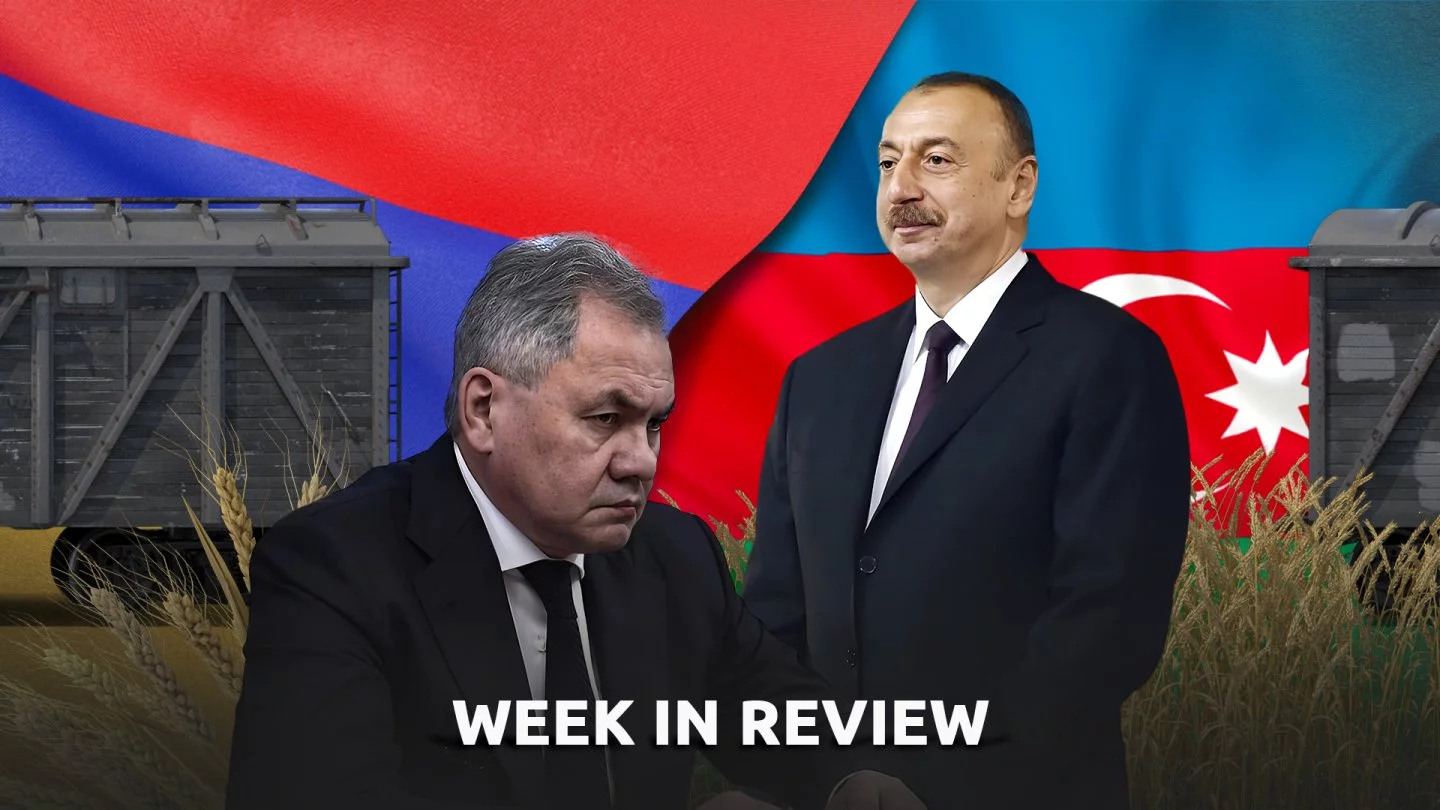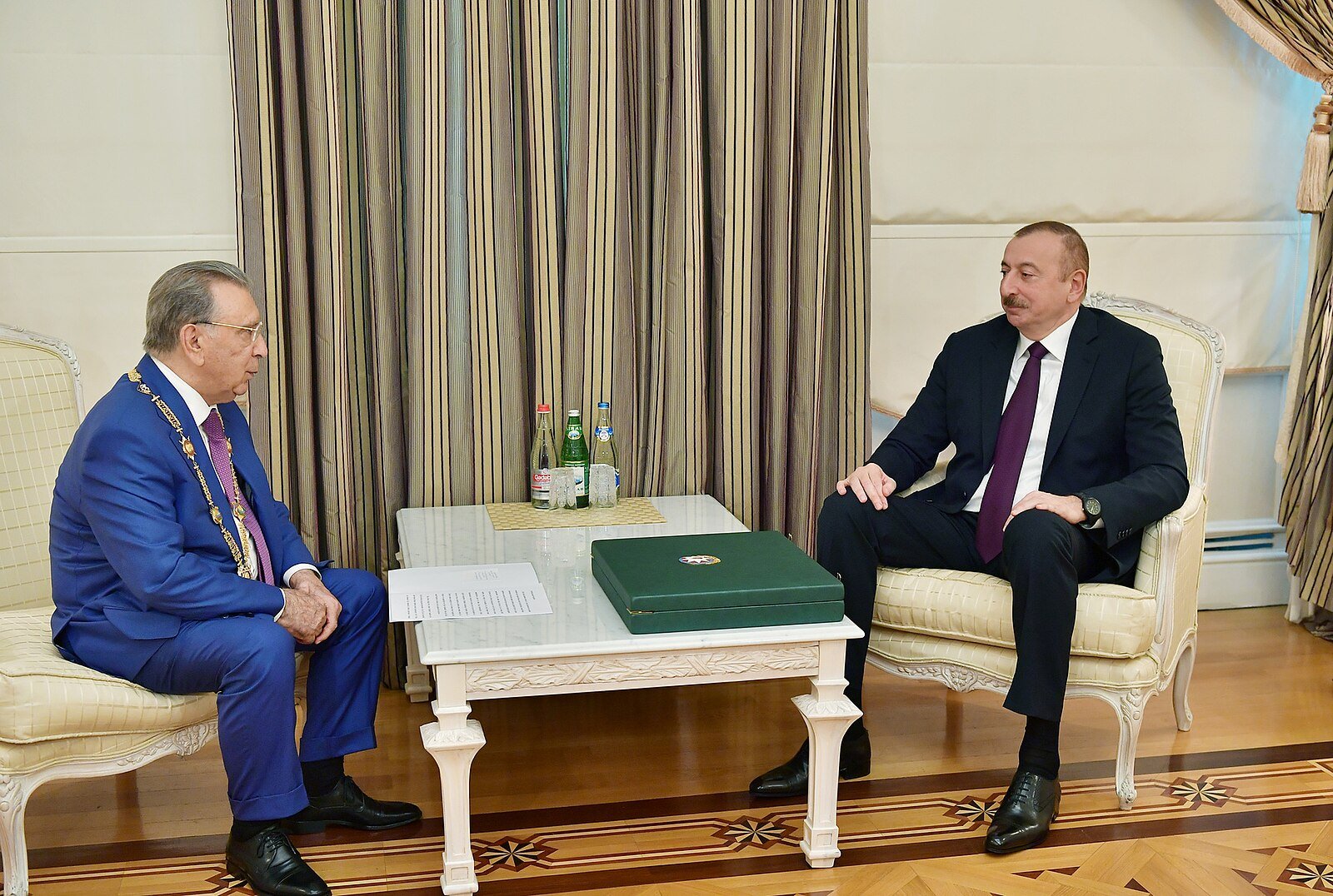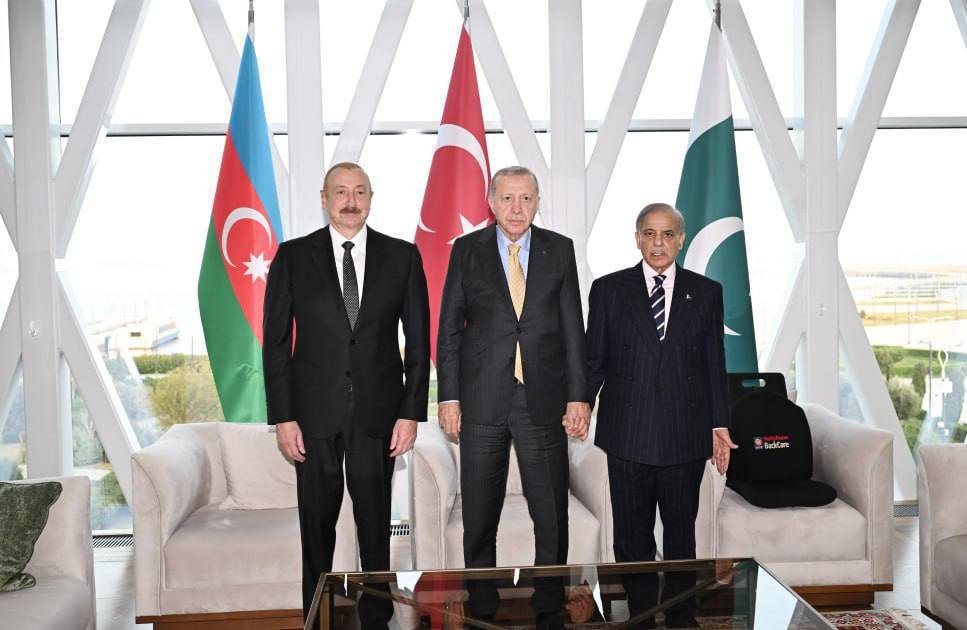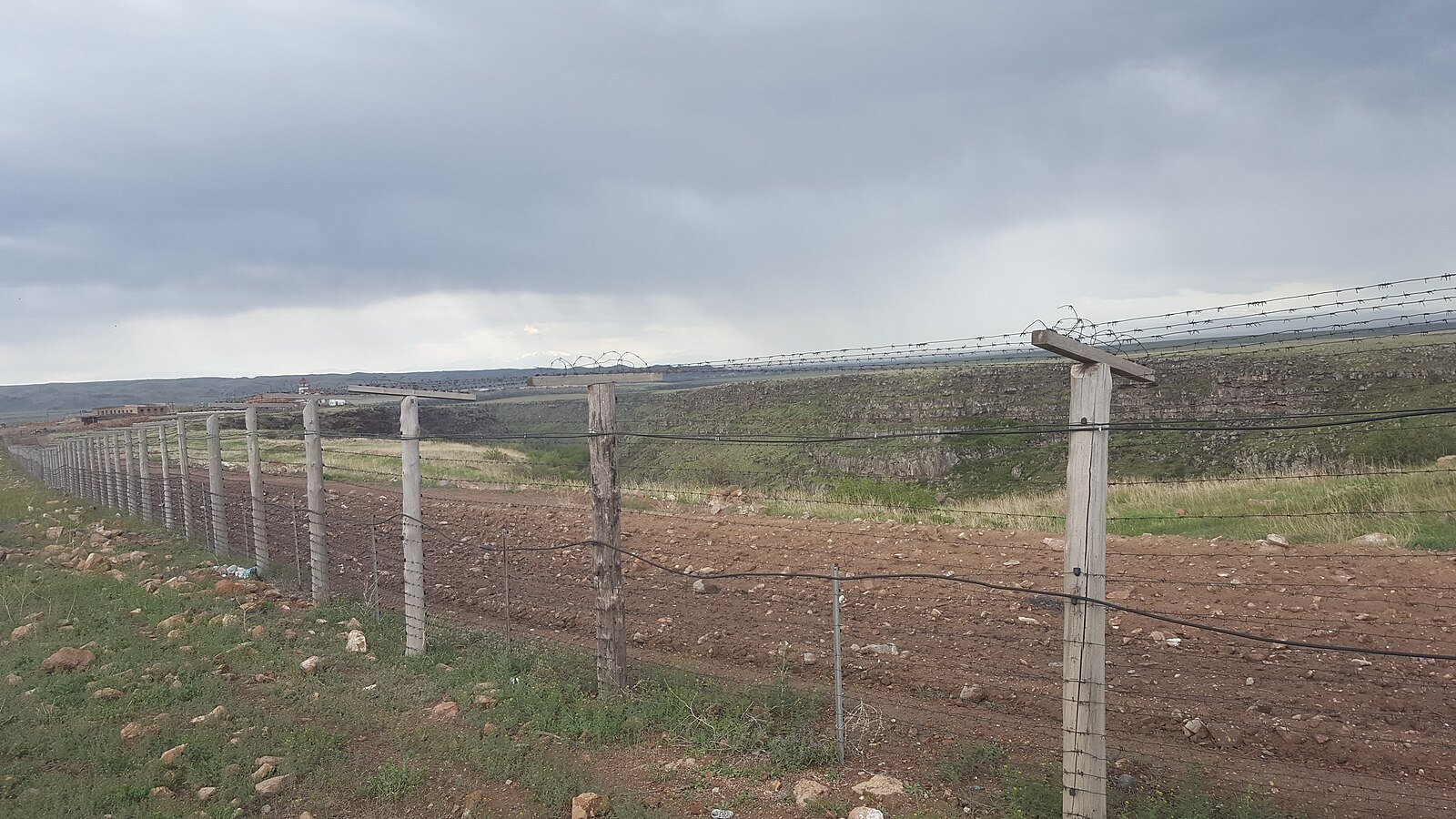Week In Review: Meetings, Logistics, And More...
 Photo: Collage, Orda
Photo: Collage, Orda
Orda.kz has put together a brief synopsis of last week's news. This edition focuses on Armenia, Russia, and Azerbaijan.
A Meeting in Moscow
On November 5, security officials from across the Commonwealth of Independent States convened in Moscow to discuss stability and cooperation.
In particular, Azerbaijani Security Council Secretary Ramil Usubov met with his Russian counterpart Sergey Shoigu during the meeting. They discussed regional security cooperation and the resumption of the “3+3” regional platform.
The platform brings together Armenia, Azerbaijan, and Georgia with Russia, Iran, and Türkiye, and was designed to foster dialogue and economic integration across the South Caucasus.
It has thus far delivered little tangible progress.
Shoigu emphasized that the South Caucasus needs constant attention and consultations, noting that peace processes should remain regional. Armenian Security Council Secretary Armen Grigoryan echoed this and thanked Shoigu for the meeting.
Shoigu further stressed the need to unblock transport and communication routes in the region, a point tied to prior agreements in the trilateral working group.
His remarks come amid notable progress in easing regional tensions, namely between Armenia and Azerbaijan. They can be seen as Russia attempting to reinsert itself as a key player in regional discussions.
However, Russia's role has diminished sharply and is unlikely to recover in the foreseeable future.
Moscow has nonetheless made progress in appeasing Baku, which has established itself as a pivotal regional actor.
Amid this progress, Azerbaijani media have claimed that the Kremlin shared Ramiz Mehdiyev's coup d'état plans, which he allegedly sought to execute with Russian support. Mehdiyev has been labeled a "gray cardinal" and held an influential position as Head of the Presidential Administration of Azerbaijan from 1994 to 2019.
According to The Insider, an anonymous source purportedly told Vetsi Baku that the AZAL plane crash — a catalyst in deteriorating Azerbaijani-Russian relations — was mistakenly shot down instead of Aliyev's aircraft en route to Moscow.

Although Aliyev was indeed traveling to Moscow at the time, the assertion is questionable. How Azerbaijani officials perceive it is unclear, but the narrative being pushed around Mehdiyev suggests he has become a convenient focus of speculation.
Similarly, Armenian law enforcement arrested the mayor of Gyumri, Vardan Ghukasyan. Ghukasyan stands accused of “public calls to renounce the sovereignty of the Republic of Armenia.”
The accusation stems from his statement that "Armenia should form a union with Russia, while preserving its own laws, parliament, and government." It follows others made over questionable ties to Russia, namely Samvel Karapetyan.
Pashinyan's party seems to be sidelining political opponents before the 2026 parliamentary elections, as his popularity appears unlikely to secure a victory.
Although Baku and Yerevan continue to acknowledge Moscow formally, both demonstrate non-negligible agency in their decision-making and preference to prioritize their interests.
Clashing Reports, Strong Language
Around the same time, reports surfaced about a major Armenian deal to acquire India’s Su-30MKI fighter jets.
Yerevan swiftly denied them, with Defense Minister Suren Papikyan stating that no such agreement exists. Still, India and Armenia have been developing a close defense partnership, as Yerevan remains wary of its traditional partner, Moscow, following its failure to deliver weapons already paid for.
Following President Ilham Aliyev’s remarks claiming there is no Lake Sevan — a well-known Armenian landmark — only Goycha, the Armenian Authorities were quick to respond, labeling the remarks as incomplete, politically motivated, and aimed at domestic audiences.
One explanation was that the Azerbaijani president was not threatening war, but was speaking of peaceful access. Meanwhile, Armenia's Defense Minister Suren Papikyan commented that since August 8, Azerbaijani rhetoric has softened, and added that peace is becoming a reality.
Against that backdrop, Baku marked its victory in the Second Nagorno-Karabakh War on November 8, with Turkish President Recep Tayyip Erdoğan and Pakistani Prime Minister Shehbaz Sharif present — a notable pairing, given Türkiye’s fraught history with Armenia and Pakistan’s own tensions with India.

Incidentally, on November 3, Armenian Parliament Speaker Alen Simonyan addressed the lack of a signed peace treaty and noted Azerbaijan’s absence from the Euronest Parliamentary Assembly and President Aliyev’s choice not to attend the European Political Community summit in Armenia in May 2026.
Still, Simonyan said, “The ice has broken,” and emphasized that both sides want to continue communication despite remaining issues such as prisoners of war.
Indeed, a roundtable between representatives of Armenian and Azerbaijani civil society was held on October 21–22 in Yerevan at the Research Center for Policy Studies, marking the first such dialogue not in a third country.
Observers still caution how independent such actors are, underscoring the overall fragility.
Economic Signals
In late October, Azerbaijan lifted all cargo transit restrictions to Armenia, in place since the 1990s Karabakh conflict. The announcement came from President Aliyev at a joint press conference with President Qasym-Jomart Toqayev in Astana.
At the time, Aliyev asserted that peace between Armenia and Azerbaijan was reflected in action, not just words.
Both Kazakh and Russian wheat subsequently reached Armenia via Azerbaijan.
Against that backdrop, Armenia announced that it had completed preparations for reopening its border with Türkiye. Secretary of the Security Council Armen Grigoryan, citing research from the Amberd Institute at the Crossroads of Peace conference in Brussels, said mutual benefits could include up to a 200% trade increase, with shorter trade routes to Eastern and Central Europe.
Armenia and Türkiye have had strained diplomatic relations since 1991, and the border has been closed since 1993 at Ankara’s initiative.

Prime Minister Nikol Pashinyan announced on October 27 during the 2026 draft budget discussion that Armenia is ready to serve as a transit route for Turkish-Azerbaijani cargo, proposing the Margara–Yeghegnadzor–Sisian–Goris corridor.
Official Ankara has so far demonstrated little interest in the proposal.
Despite apparent interest in reopening logistics, Türkiye seems unwilling to overstep prematurely, given the lack of a signed peace agreement and its long-standing commitment to Azerbaijan.
Ready, Set...No?
Regardless of readiness, Armenian officials have been consistent in their rejection of Baku's favored route, “the Zangezur Corridor,” instead promoting the Trump Route for International Peace and Prosperity (TRIPP), agreed upon via the declaration signed in Washington.
Yerevan's alternative project, "The Crossroads of Peace," has remained central to Armenia's narrative, but no definitive date for construction has emerged. By comparison, official Baku has floated a potential 2028 start date for the Zangezur Corridor.
Although other issues remain between the two nations as well, such as constitutional claims, expert opinion is cautiously optimistic that the risk of military escalation has fallen greatly. Azerbaijan's lifting of cargo restrictions for Armenia is indeed encouraging, but a signed peace deal remains hostage to the same narratives it was before Trump brokered the Washington declaration.
Türkiye will back Baku, while appearing to prefer a consensus among all parties. In contrast, Russia will assume whatever role it receives, as minimal as it may be. Once pushing for the Zangezur Corridor, Moscow has, in all likelihood, lost the opportunity to become its security guarantor, and Russian authorities have come to terms.
Iran — an adamant defender of Armenian territorial sovereignty — will continue to oppose the corridor unless U.S. influence over the corridor is somehow limited, a stance China is also likely to find advantageous. Beijing has expanded its presence in the area.
The U.S. is not formally bound to TRIPP despite appearances. A timetable and key details are yet to be settled, including the extent to which US contractors will be involved in operating the corridor and providing security.
Additionally, the Trump Administration has shown it is quick to move on to other events, providing an opportunity for another party to influence the situation. Astana, guided by neutrality and pragmatism, could emerge as such an actor, as Kazakhstan maintains positive relations with all parties involved. Aliyev's announcement of lifting restrictions on Armenia in Astana underscores Kazakhstan's and other outside parties' ability to function as such.
Whatever influence comes into play, Baku and Yerevan remain their own worst enemies, both metaphorically and literally. Armenian officials have rushed to quell reports that might suggest an arms build-up, while Baku, having the upper hand, trumpets its victory in Karabakh, one seen as a devastating defeat in Armenia.
Tones may have shifted, particularly regarding Azerbaijan's enclaves, but the underlying logic remains unchanged.
Whether sustainable engagement follows or lines in the sand are simply redrawn remains to be seen. The only thing for certain is that every step forward rehashes long-standing contradictions and competition.
Latest news
- Kazakhstan Maintains Neutral Stance on Middle East Escalation
- Kazakh MFA: Citizens Evacuated from the Middle East via Oman and Saudi Arabia
- Kazakhstan to Spend 4.6 Trillion Tenge on Road Projects Through 2029
- Central Asia Competes for the Skies: Why Kazakhstan Risks Falling Behind Uzbekistan on Jet Fuel
- The War in Iran Opens a Window of Opportunity for Kazakhstan’s Oil Sector, Analysts Say
- Iran Conflict Escalates Beyond the Gulf: What Kazakh Experts Say About Risks for Central Asia and Kazakhstan
- Kazakhstan Prepares Possible Evacuation of Its Citizens From Iran
- LRT in Astana Is Reaching the Finish Line: The Launch Is Expected in the Coming Months
- Kazakhstan Ready to Help the UAE Amid Escalation in the Region
- Tokayev Discusses Middle East Escalation With Qatar’s Emir
- Airlines Ready to Bring Kazakhstanis Home From the Middle East
- Tokayev Sends Support Messages to Gulf Leaders Amid Regional Escalation
- Kazakhstan Bans Its Airlines From Flying Over Several Middle East Countries
- Astana Strengthens Security Measures Amid Escalation Around Iran
- Tokayev Meets U.S. Ambassador Stufft, Discusses Board of Peace Cooperation
- Mangystau Launches AI-Assisted School Monitoring to Prevent Teen Suicidal Behavior
- Kazakhstan to Supply UK With Critical Minerals
- AI Faculties for Educators to Open in Kazakhstan: What Other Changes Are Coming to the Education Sector
- There Are Medals — But Not Enough Ice: What’s Happening to Figure Skating in Kazakhstan
- Is Kazakhstan’s Nuclear Power Plant Project at Risk After New UK Sanctions? Rosatom Responds

